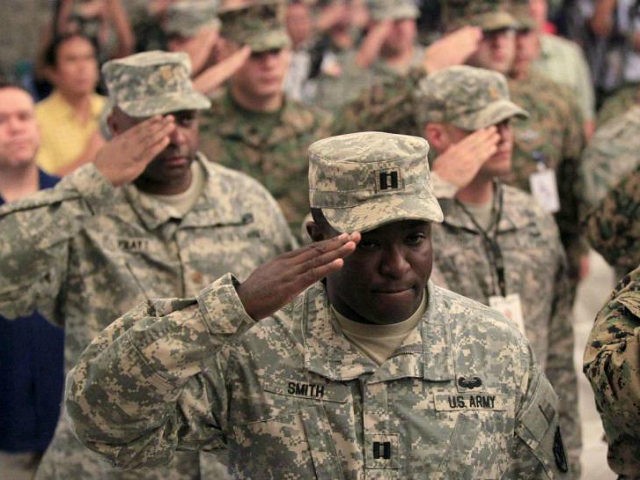A proposal tucked deep inside the Senate’s draft of the 2017 National Defense Authorization Act (NDAA), currently being debated on Capitol Hill, seeks to radically reform the U.S. troops’ Basic Allowance for Housing (BAH), arguing that “the benefit now far exceeds the actual cost.”
The major overhaul will potentially increase the troop’s annual expenses by thousands of dollars, predicts the Military Times.
Upon returning to Capitol Hill this week from their Memorial Day recess, Senate lawmakers moved to consider the “must-pass” $602 billion legislation.
The BAH reform language is excluded from the House version of the bill, which was approved on May 18 by a largely party-line vote of 277-147.
In their version, Senators are targeting the troops’ housing stipend in an effort to trim the bloated defense budget, notes the Washington Times.
Under Senate Majority Leader Mitch McConnell (R-KY), Senators are proposing to shift toward a system that only allocates funds for the costs of rent and utilities, moving closer to the military’s Overseas Housing Allowance system that reimburses troops for actual expenses and requires them to provide proof on what they spend.
The ultimate goal is to get rid of the current Basic Allowance for Housing system, which assigns stipends at a fixed-rate based on the service members’ zip code, rank, and family status.
The Senate argued in its report on the NDAA:
While service members paid as much as 22 percent of their housing costs out-of-pocket in the decades preceding the change to the current system in the late 1990s, by 2006, out-of-pocket expenses were eliminated entirely, and indeed, in certain circumstances, as demonstrated by a recent US Army Audit Agency (USAAA) audit, the benefit now far exceeds the actual cost of housing borne by some service members…
USAAA found that BAH entitlements paid to married service members collected in the same military housing area significantly exceeded the local housing costs for these service members by more than $200 million in fiscal year 2014 alone, and recommended modifying BAH to bring actual costs more in line with the provided benefit.
The changes will end up increasing annual expenses for troops as Housing stipends are estimated to drop to 97 percent of expected area housing costs next year, while pay increases remain below private sector wage estimates for the fourth consecutive year, notes the Military Times.
The proposed BAH reforms have the “potential to change housing stipend totals for nearly every service member in coming years, with some potentially losing hundreds of dollars a month. And it comes after a series of pay and benefits trims in recent years that have left advocates frustrated about increased financial strain on military families,” reports the news outlet.
The changes reportedly seek to end the practice of U.S. service members pocketing extra cash from the housing stipends, according to the Military Times.
Senators describe their move to radically overhaul the Housing stipend system as an effort to trim defense spending and prevent abuse in the allegedly bloated BAH.
In their report on the NDAA, Senators wrote:
BAH, and the iterations of the benefit that came before, was intended to provide a housing benefit for service members in recognition of the transient nature of military service, and in further recognition of the reality that civilian spouses are often unemployed and sacrifice careers of their own. That the housing allowance was and is intended as primarily a housing benefit is demonstrated by its tax-free nature, the differentiation based on dependency status, and the fact that service members occupying government quarters … are ineligible to receive BAH.
The Pentagon opposes the Senate proposal to change the Housing allowance system.
In March, the Pentagon delivered a report on housing stipends to Congress, arguing that it would be “inappropriate to limit a member’s compensation by tying that compensation to actual expenses,” adding that the allowance is “simply another form of compensation.”
“While potential savings could be achieved… providing a degraded compensation package to one member, solely because of that member’s status of being married to another member, and co-location, stands in direct conflict with the principle that a member is paid regular military compensation in exchange for his or her service,” reported the Pentagon.
President Barack Obama has threatened to veto the NDAA, without citing the BAH changes as a reason.
In its report to Congress delivered last year, the Military Compensation and Retirement Modernization Commission argued against dramatically altering the BAH, saying it “strikes an appropriate compromise between representing compensation to service members and assistance for their living expenses.”

COMMENTS
Please let us know if you're having issues with commenting.